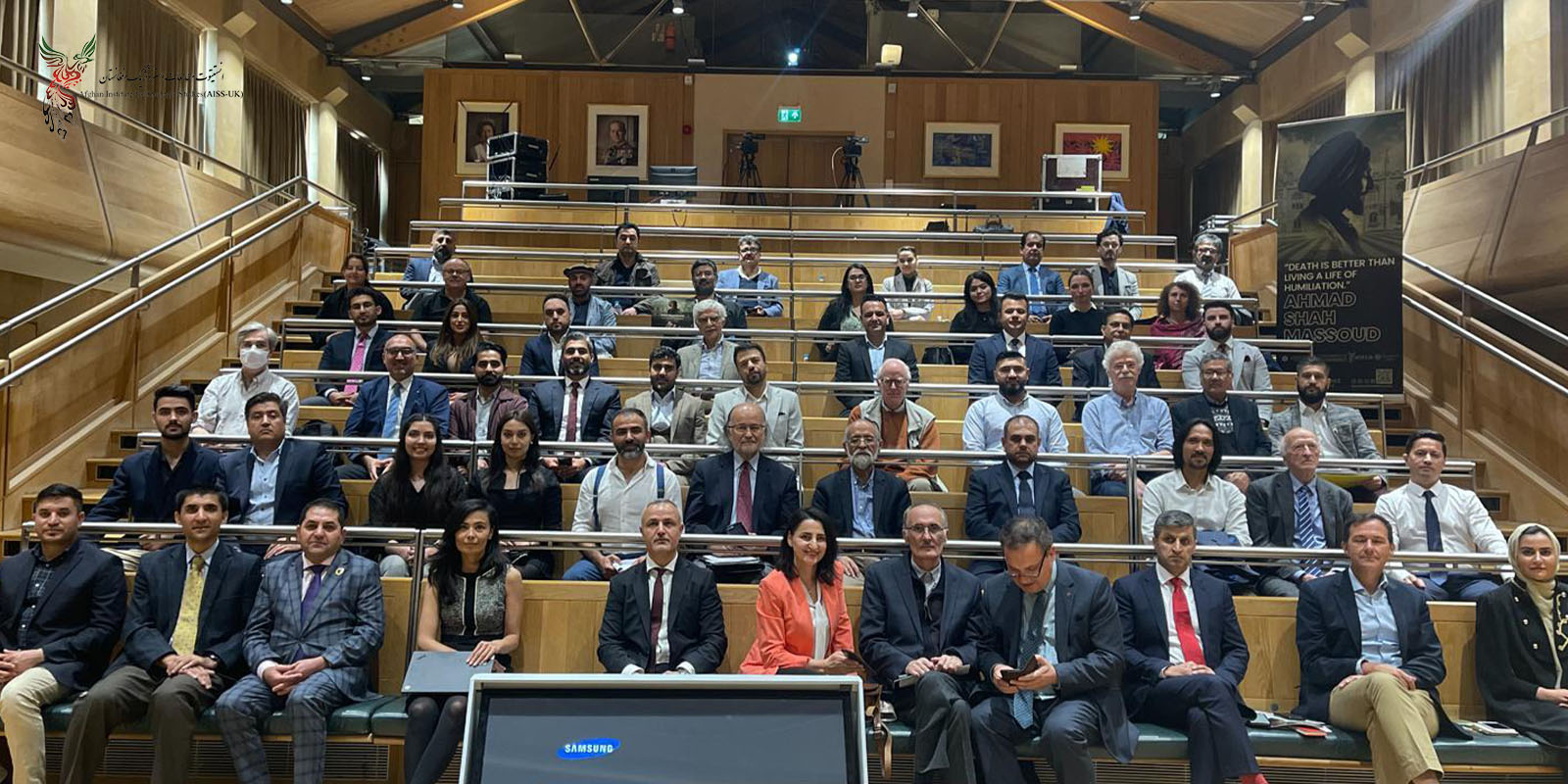Afghan Institute for Strategic Studies and the University of Cambridge hosted a two-day conference titled Ahmed Shah Massoud: Afghanistan's Past, Present, and Future
A group of think tanks and researchers in collaboration with the Afghan Institute for Strategic Studies and the University of Cambridge hosted a two-day conference titled “Ahmed Shah Massoud: Afghanistan's Past, Present, and Future". During the event, scholars, researchers, and experts from different countries discussed, in seven panels, the structure and centralized political system of Afghanistan in the last two decades; the action plan of the Taliban during the past year; alternatives to the highly centralized political system in Afghanistan; Federalism as a solution or partition; Ahmad Shah Massoud's legacy – a decentralized political system; the possibility and the opposition to establish a federal political system; and methods of resistance.
Dr.Moradian, Director of the Afghan Institute for Strategic Studies, inaugurated the second day of the conference with keynote remarks on the Taliban’s Totalitarian Regime; British Repentance. Dr. Moradian emphasized that the Taliban is a political group that belongs to an absolutist and autocratic regime. While praising women's freedom in Afghanistan. He also stated that the Taliban perceived women as their enemies, and any movement by women to demand their rights threats the supremacy of the Taliban.
During the second day of the conference, the AISS held a panel discussion on "From Proxy War to Regional Consensus and Neutral Status". Dr. Ayesha Siddiqa, Senior Fellow in the Department of War Studies at Kings College London, Dr. Avinash Paliwal, Senior Professor of International Relations at SOAS University of London, and Dr. Akram Umarov, Research Associate at the Tashkent Jean Monnet Center for European Studies participated in this panel discussion with moderation by Khandan Danish, Public Relations Officer at the AISS and Ph.D. candidate of the University of East Anglia.
At this roundtable, speakers discussed regional countries’ relationship with the Taliban. Dr. Siddiqa discussed Pakistan’s relationship with the Taliban, and it is living with the old and Surviving the New Taliban. Dr. Paliwal provides an overview of India's relationship with Afghanistan’s previous regime and its current engagement with the Taliban. Dr. Umarov discussed Uzbekistan-Afghanistan relations after the Taliban takeover in 2021.
Second part of the panel was allocated to Q&A where panelists and conference participants exchange view on some of the issues related to reginal security and consensus.
The purpose of this two-day conference was to scrutinize the roots of the conflict in Afghanistan and reach an intellectual consensus to reach a political solution.
Full report of the conference will be released in due course.

